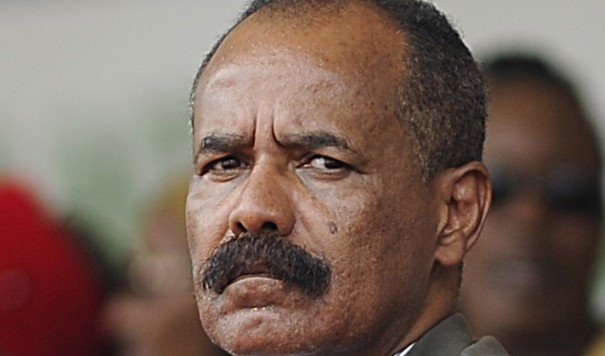BY TOM MILES

U.N. rights investigators accused Eritrean leaders of crimes against humanity including torture, rape and murder on Wednesday and called on the Security Council to impose sanctions and refer the case to the International Criminal Court.
Atrocities - including an indefinite military national service program that amounted to mass enslavement - had been committed since the country's independence in 1991 and were ongoing, the U.N. Commission of Inquiry said.
There was no immediate response from the Horn of Africa country, but it has routinely dismissed reports by U.N. bodies and campaign groups of rights violations in the past.
"Particular individuals, including officials at the highest levels of State, the ruling party - the People’s Front for Democracy and Justice - and commanding officers bear responsibility for crimes against humanity and other gross human rights violations,” the inquiry's report said.
The inquiry said there had been no improvement since a year ago when it published a 484-page dossier describing extrajudicial killings, widespread torture, sexual slavery and enforced labor.
Visitors to the country should not be fooled by the "general sense of calm and order" in the capital Asmara, because abuses were carried out in military training camps and detention centers, the report said.
"The facade of calm and normality that is apparent to the occasional visitor to the country, and others confined to sections of the capital, belies the consistent patterns of serious human rights violations," it added.
Eritrea's government did not allow the inquiry team to visit the country, although its diplomats met the investigators at the U.N. headquarters in New York.
Last year the three-strong inquiry team, led by Australian diplomat and counter-terrorism expert Mike Smith, did not have a mandate to look into "international crimes", so the previous report said only that crimes against humanity may have been committed, without apportioning blame.
In the past year, the inquiry has received almost 45,000 written submissions, almost all group letters and petitions criticizing the first report, the direct result of a government campaign to discredit the inquiry, the report said.
Some signatories contacted by the inquiry said they had been coerced or their signatures had been forged and they were unaware of the letters, the report added.
(Reporting by Tom Miles; Editing by Andrew Heavens)